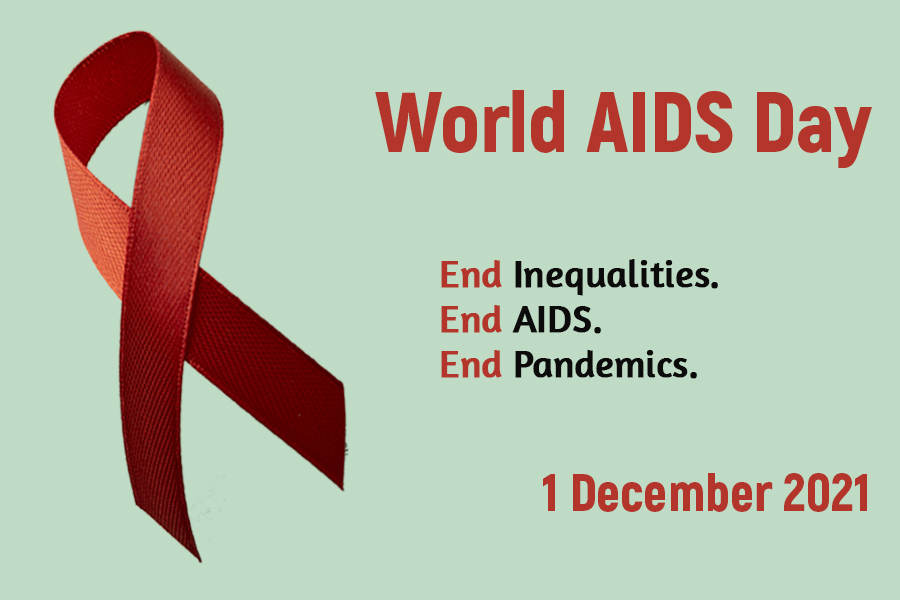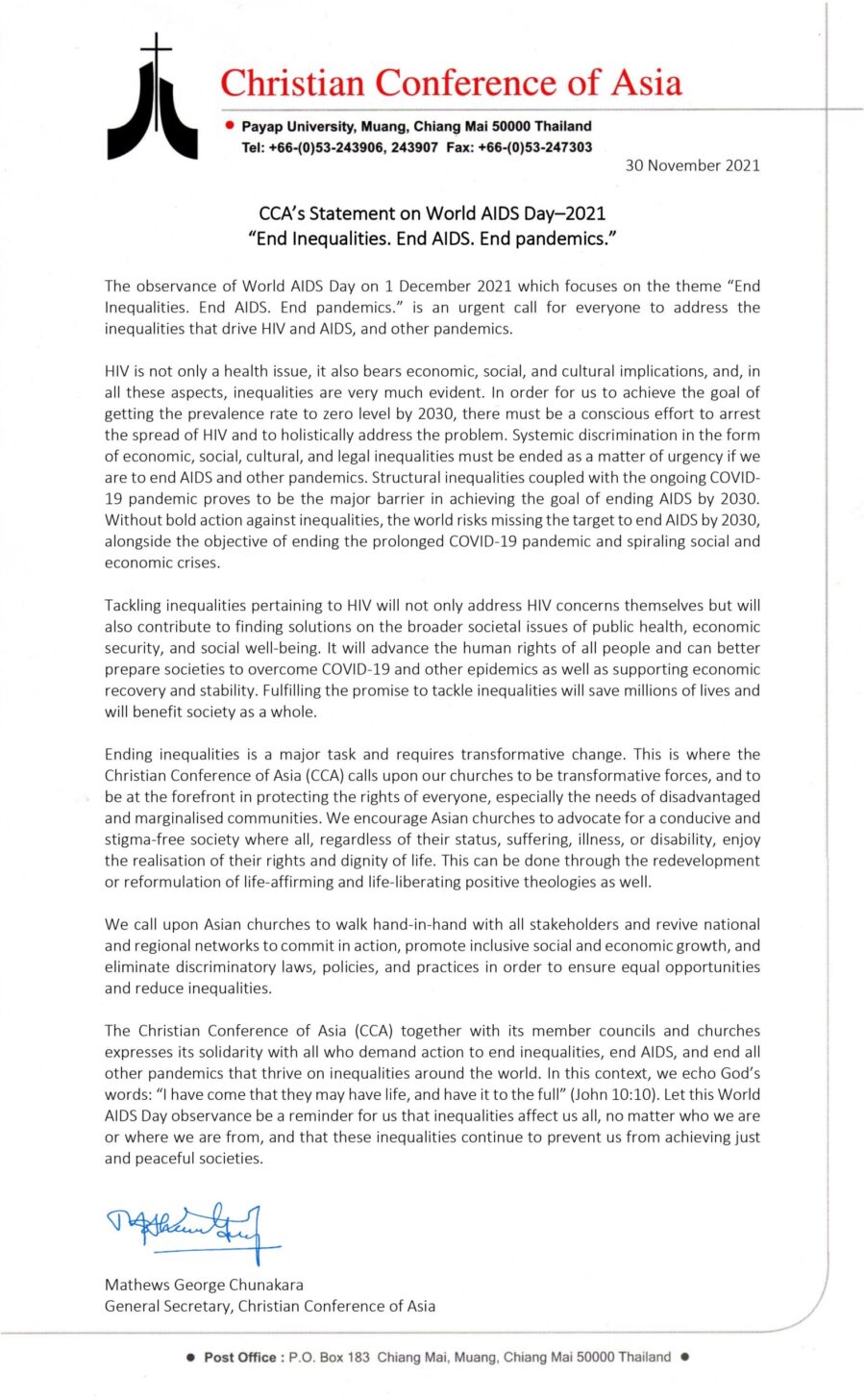CCA encourages “bold action” against inequalities to end AIDS on World AIDS Day–2021

Chiang Mai: In a statement released on the occasion of World AIDS Day, which falls on 1 December each year, the CCA General Secretary Dr Mathews George Chunakara observed, “Without bold action against inequalities, the world risks missing the target to end AIDS by 2030, alongside the objective of ending the prolonged COVID-19 pandemic and spiraling social and economic crises.”
The theme for this year, “End Inequalities. End AIDS. End pandemics” is “an urgent call for everyone to address the inequalities that drive HIV and AIDS, and other pandemics,” reads the statement.
“Tackling inequalities pertaining to HIV will not only address HIV concerns themselves but will also contribute to finding solutions on the broader societal issues of public health, economic security, and social well-being. It will advance the human rights of all people and can better prepare societies to overcome COVID-19 and other epidemics as well as supporting economic recovery and stability. Fulfilling the promise to tackle inequalities will save millions of lives and will benefit society as a whole,” noted the CCA General Secretary.
Dr Mathews George Chunakara also called upon Asian churches to “walk hand-in-hand with all stakeholders and revive national and regional networks to commit in action, promote inclusive social and economic growth, and eliminate discriminatory laws, policies, and practices in order to ensure equal opportunities and reduce inequalities”.
The full text of the CCA’s Statement on World AIDS Day–2021 can be found below:











